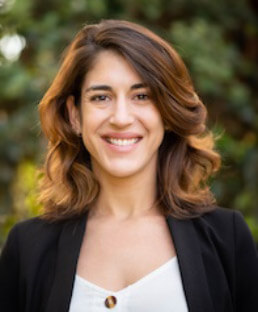When hearing the word “addiction,” people usually think of drug and alcohol addictions. But addiction can lure us towards all sorts of things. People are addicted to smoking, apps and mobile devices, social media, eating, relationships, etc.. It’s always fascinating to look at addiction and mindfulness – as the addict. We hear that, how mindfulness can help treat addictions. But how?
So when we see food, eat it, and feel good afterwards, our brain’s survival mode tells us “remember what you ate, how you felt, and where you got it.” It becomes a cycle of survival: hungry, get food, eat, feel better, hungry, get food, eat, feel better. This kind of reward system is how addictions grow. We remember what makes us feel a certain way and when we want that feeling, we know what to do.
Yes, sometimes addictions can turn physical, when our bodies start to rely on what we’re putting into it. These types of addiction to do need medical supervision for healthy detox. However, mindfulness is still useful for all addicted situations. Rather than forcing people to stop a habit, which is never successful long term, mindfulness encourages curiosity. That’s it! So if you’re trying to quit smoking, mindfulness doesn’t say stop smoking, it just says to observe your smoking experience. Be curious about it. Notice details. That’s it! Usually what happens is people start to think outside of that addiction reward cycle. Once that happens, the cycle is broken. Because curiosity is it’s own reward system too. When we’re curious and get an answer or observation, we feel rewarded, which feels good.
So someone smoking might notice the smell of the smoke, the taste, the time it takes, the feeling they get, and they learn so much. Some people might be turned off by the details they notice, like “eww this actually tastes nasty, why am I doing this?” And by letting curiosity take you further into “why am I doing this?” you can find the root to your addiction – maybe the reason why you started (which is the same reason you continue to do it). Once you address the root where it all stemmed from, the magic spell is lifted. You’re not controlled by it anymore because when you feel urges or cravings, you know why.
Mindfulness is a simple way to break a bad habit. Or at least a way to help make it easier on yourself. As mentioned earlier, some addictions and bad habits need medical supervision, so please contact a medical professional to guide you. If “rehab” turns you off, there are other outpatient options available to help you get your life back. If you’re in the San Diego area or in a nearby city, please contact Crownview Medical Group to get in touch with a trained medical professional in individualized addiction treatments.
Source:
http://www.ted.com/talks/johann_hari_everything_you_think_you_know_about_addiction_is_wrong

Dr. Melden earned his Doctorate in Osteopathic Medicine at Philadelphia College Osteopathic Medicine and went to USC Presbyterian Hospital for his residency in Family Medicine. He then completed his Psychiatric residency at the University of California, Irvine and went to UCSD Geropsychiatry pursuing a fellowship. Dr. Melden has over 14 years of experience as a clinician specializing in treating child and adolescent, adult and geriatric clients. He has devoted his life to psychiatry in a variety of different treatment settings including in- patient and out-patient environments. He specializes in the psychiatric evaluation, complementary therapy approaches, and medical management of individuals suffering from mental illness. Currently, he maintains a private practice with Crownview Medical Group in Coronado and Carlsbad, California where he is CEO/President.


 Myriame Nicolas, PMHNP-BC
Myriame Nicolas, PMHNP-BC
 Charlie Perez, PMHNP-BC
Charlie Perez, PMHNP-BC Kimberly Umansky, FNP-C
Kimberly Umansky, FNP-C Joanne Talbot Miller, M.A., LMFT
Joanne Talbot Miller, M.A., LMFT J. Heather Fitzpatrick, LCSW
J. Heather Fitzpatrick, LCSW Agata Nowakowska
Agata Nowakowska Brianna Meacham
Brianna Meacham Maha Moses, PhD
Maha Moses, PhD Rebecca McKnight, PsyD
Rebecca McKnight, PsyD Tiffany Holm N.P.
Tiffany Holm N.P. Dede Echitey, PMHNP-BC
Dede Echitey, PMHNP-BC Apneet Mann, FNP-C
Apneet Mann, FNP-C Rachael Hueftle, NP
Rachael Hueftle, NP Kelvin Poon, MSN, PMHNP-BC
Kelvin Poon, MSN, PMHNP-BC



